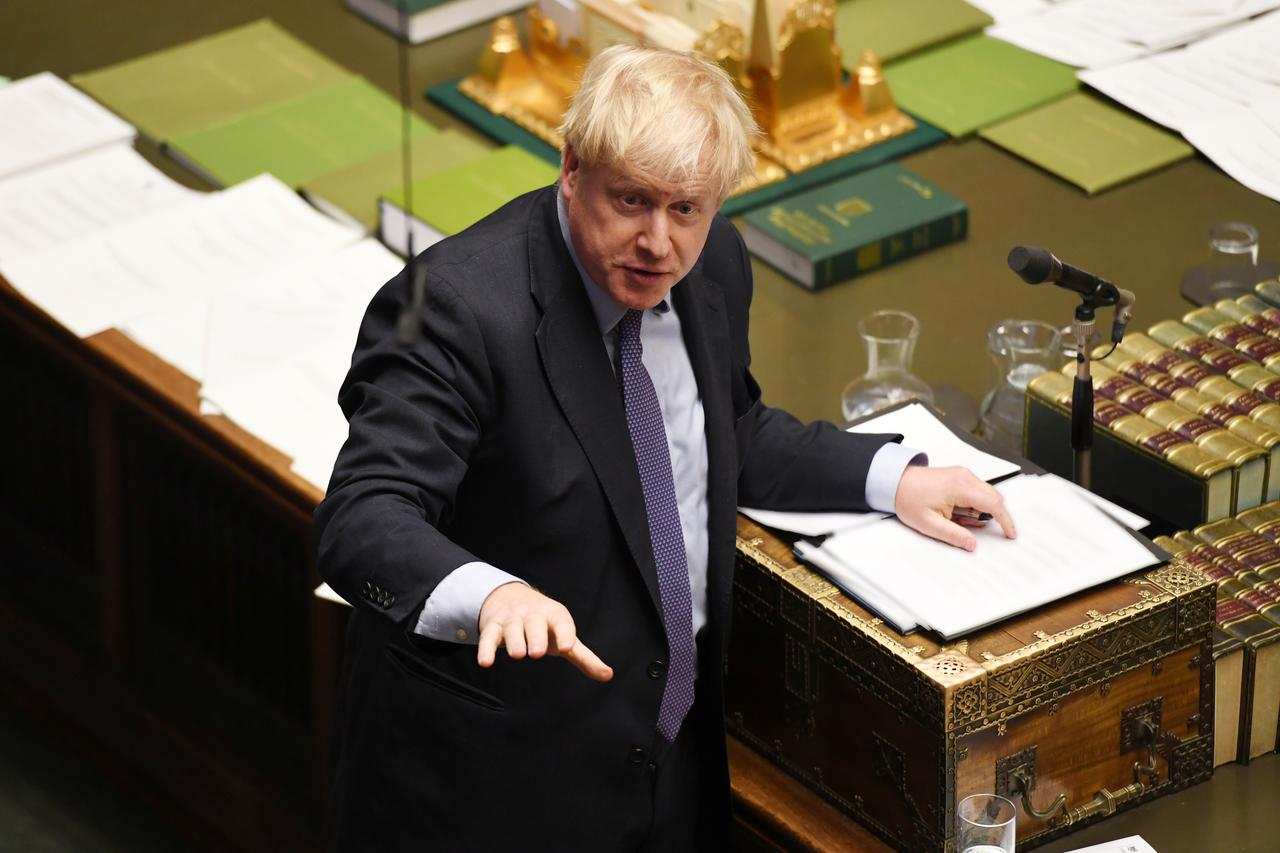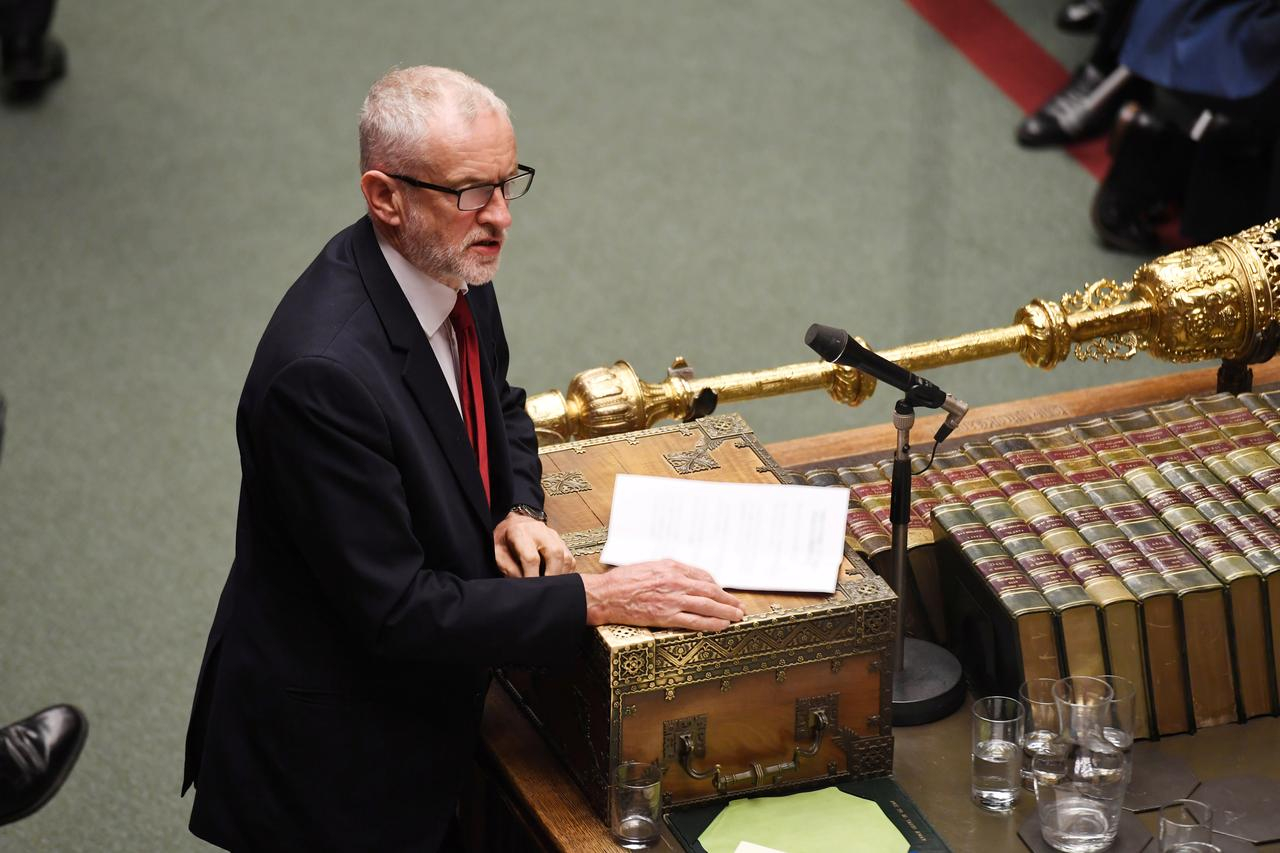British Prime Minister Boris Johnson on Wednesday met with the leader of the opposition Labour Party Jeremy Corbyn one day after MPs rejected the prime minister's plan to fast-track a bill to implement Brexit deal through Parliament.
Corbyn said that MPs must "have the necessary time to improve on treaty," reiterating his offer to Johnson to agree a "reasonable timetable" to pass Brexit legislation.
"Jeremy Corbyn reiterated Labour's offer to the prime minister to agree a reasonable timetable to debate, scrutinize and amend the Withdrawal Agreement Bill, and restated that Labour will support a general election when the threat of a No Deal crash out is off the table," a party spokesman said in a statement.
Later in Parliament, Johnson called on Corbyn to explain how he would get Brexit done, repeating his disappointment that Parliament had rejected his timetable while voting in favor of his deal.
"There is still time for (Corbyn) ... to do that and explain to the people of this country how he proposes to honor his promise that he made repeatedly and deliver on the will of the people and get Brexit done," Johnson told Parliament.

Britain's Prime Minister Boris Johnson is seen at the House of Commons in London, Britain, October 22, 2019. /Reuters Photo
Britain's Prime Minister Boris Johnson is seen at the House of Commons in London, Britain, October 22, 2019. /Reuters Photo
During Wednesday's Prime Minister's Questions (PMQ), Johnson said it was "remarkable" that MPs backed the Withdrawal Agreement Bill on its first hurdle through the Commons, but he also said that it is a shame the House of Commons did not vote for the timetable for it.
He told the House of Commons that MPs had "willed the end but not the means" and it was now the European Union's decision on whether to grant an extension beyond October 31.
In a message Johnson delivered to European Council President Donald Tusk earlier Wednesday morning, the prime minister said he did not want another Brexit delay, confident he could still get a deal through parliament by October 31.
"It's very clear the public wants this done ... they want Brexit done ... We're very clear we'd like to get Brexit done by October 31," Johnson's political spokesman said.
Johnson a day earlier said if the European Union offers Britain an extension to the end of January, he will pull the legislation aimed at ratifying his exit deal and seek an election to break the deadlock over Brexit.
UK Labour: Election stance will depend on EU Brexit offer
The Labour Party will look at the details of any Brexit delay to be certain the risk of a no-deal exit has been removed before it decides whether to back an early general election, a spokesman for the party said on Wednesday.
"We will support an election as soon as the risk of a no-deal is taken off the table and what that means will depend on the exact terms of the EU offer," the spokesman said. "We will need something which has legal force."
"What we are trying to avoid is any kind of shenanigans on the government's side, any kind of moving of the goal posts which would allow a no-deal crash-out," he added, noting one concern is that the government has the power to set the election date.

Britain's opposition Labour Party Leader Jeremy Corbyn is seen at the House of Commons in London, Britain, October 22, 2019. /Reuters Photo
Britain's opposition Labour Party Leader Jeremy Corbyn is seen at the House of Commons in London, Britain, October 22, 2019. /Reuters Photo
Irish PM: EU leaders may meet on Friday if no Brexit extension consensus
European Union leaders may need to meet as soon as Friday if they cannot agree through contacts with Tusk on the terms of a potential Brexit extension, Irish Prime Minister Leo Varadkar said.
"If there is consensus, we can do this by written procedure. If there is not, well then we will have to convene a meeting of the European Council, possibly next Monday, maybe even on Friday to discuss whether or not to grant an extension, for how long and under what conditions," Varadkar told parliament.
"Certainly the Irish government has always said we want to avoid the risk of no deal and that is the approach we will be taking. Deputies will recall the extension that was granted to (former) Prime Minister (Theresa) May was what they call a flexible extension ... I do hope that (the British) parliament will now proceed with reasonable speed in concluding this withdrawal agreement."
(With input from agencies)